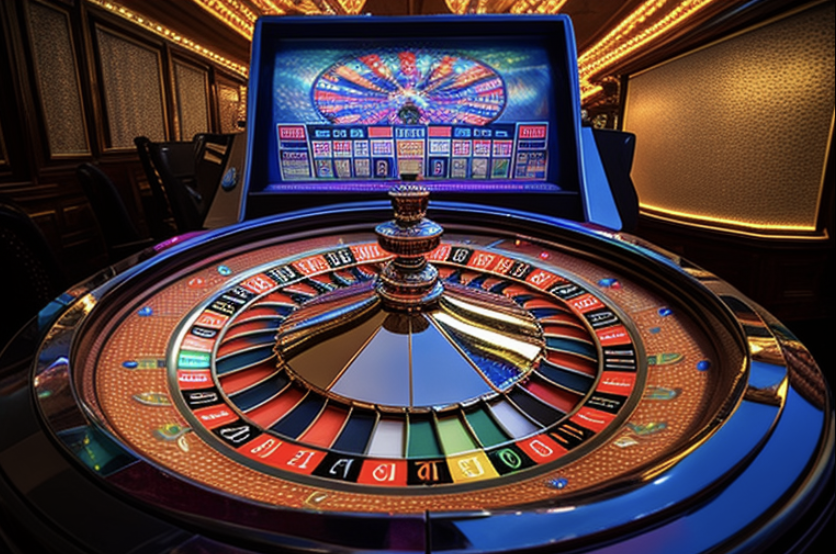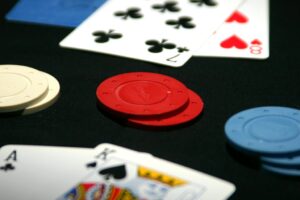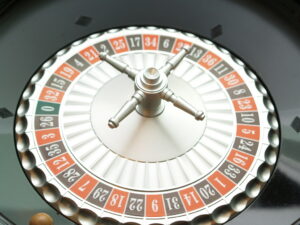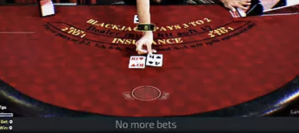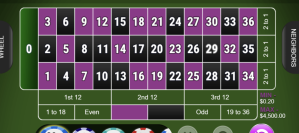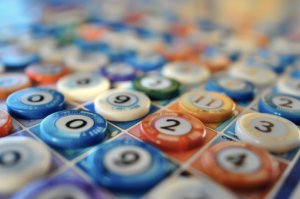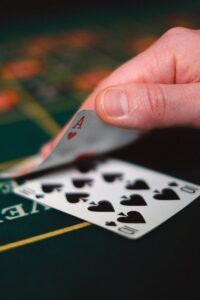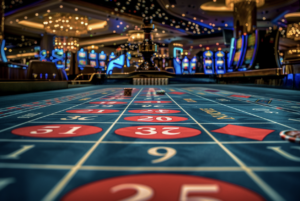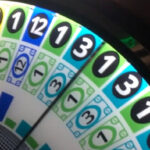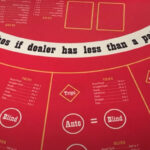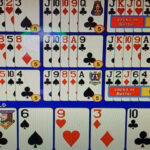Casinos have been around for centuries, and for good reason. They offer an exciting and entertaining experience for players while also providing the chance to win big. However, not all games are created equal. Some offer better odds than others, and it’s important to know which ones to play if you want to increase your chances of walking away a winner.
In this article, we’ll take a closer look at three of the most popular casino games – blackjack, roulette, and slots – and determine which one offers the most profitable outcome for players. So, before you hit the casino floor, read on to discover which game you should be playing to increase your chances of winning big.
Differences between Blackjack, Roulette and Slots
Before you choose the casino game you want to play, it’s also important to know the differences between each. In the table below, you’ll see what separates Blackjack, roulette, and slots.
| Features | Blackjack | Roulette | Slots |
| Type of game | Card game | Table game | Machine |
| Skill required | High | Low | Low |
| Rules | Fixed | Fixed | Varied |
| House edge | Low | Medium | High |
| Betting options | Limited | Varied | Varied |
| Winning odds | High | Low | Low |
| Payouts | Fixed | Fixed | Varied |
The House Edge and How it Affects Player Profitability
The house edge refers to the advantage that a casino or gambling establishment has over players in a particular game. This advantage is built into the game’s rules and is designed to ensure that the house always wins in the long run. The house edge can be calculated as the difference between the odds of winning a particular bet and the payout for that bet.
The house edge can have a significant impact on a player’s profitability, as it determines how often they are likely to win and how much they can expect to win on average. A game with a high house edge means that players are more likely to lose money over time, while a game with a low house edge gives players a better chance of winning.
Understanding the house edge is important for players who want to maximize their chances of winning and minimize their losses. By choosing games with a lower house edge, players can improve their overall profitability and increase their chances of walking away with a win.
Additionally, understanding the house edge can help players make informed decisions about when to bet and how much to bet based on their risk tolerance and overall goals.
Blackjack: Rules, Strategies, and Odds of Winning
Rules of Blackjack
The goal of blackjack is to have a hand that is closer to 21 than the dealer’s hand without going over 21. Each card has a point value: numbered cards are worth their face value, face cards (jack, queen, king) are worth 10 points, and aces are worth either 1 or 11 points, depending on the player’s preference.
At the beginning of the game, each player is dealt two cards face up, while the dealer gets one card face up and one card face down. Players can choose to “hit” and receive another card or “stand” and keep their current hand. Players can also choose to “double down” and double their initial bet, but they can only receive one additional card. If a player’s hand exceeds 21, they lose the game.
Strategies for Winning at Blackjack
One of the most basic strategies in blackjack is to follow a chart that tells you when to hit, stand, double down, or split your hand. These charts can be found online and are based on the dealer’s up card and the player’s hand.
Another strategy is to keep track of the cards that have been played in order to determine the likelihood of certain cards appearing. This is known as card counting, and while it’s not illegal, it is frowned upon by casinos and can result in being asked to leave the table.
Odds of Winning at Blackjack
The odds of winning at blackjack depend on a variety of factors, including the number of decks being used, the specific rules of the casino, and the player’s skill level.
On average, the house edge in blackjack is around 0.5%, meaning that the casino has a slight advantage over players. However, skilled players who use basic strategy and card counting techniques can reduce the house edge to as low as 0.1%.
Roulette: Types of Bets, Odds, and Payouts
Types of Bets
There are two main types of bets in roulette: inside bets and outside bets. Inside bets are placed on specific numbers or combinations of numbers, while outside bets are placed on broader categories such as colors, even or odd numbers, or high or low numbers.
Inside bets include:
- Straight Bet: A bet on a single number. The payout for this bet is 35:1.
- Split Bet: A bet on two adjacent numbers on the layout. The payout for this bet is 17:1.
- Street Bet: A bet on three numbers in a row on the layout. The payout for this bet is 11:1.
- Corner Bet: A bet on four numbers that meet at a corner on the layout. The payout for this bet is 8:1.
- Five Bet: A bet on the numbers 0, 00, 1, 2, and 3. The payout for this bet is 6:1.
Outside bets include
- Red or Black: A bet on whether the ball will land on a red or black number. The payout for this bet is 1:1.
- Odd or Even: A bet on whether the ball will land on an odd or even number. The payout for this bet is 1:1.
- High or Low: A bet on whether the ball will land on a high (19-36) or low (1-18) number. The payout for this bet is 1:1.
- Dozen Bet: A bet on whether the ball will land on one of three groups of 12 numbers: 1-12, 13-24, or 25-36. The payout for this bet is 2:1.
- Column Bet: A bet on whether the ball will land on one of three vertical columns of numbers on the layout. The payout for this bet is 2:1.
It’s important to understand the types of bets in roulette in order to make informed decisions and maximize your chances of winning.
Odds and Payouts
The odds and payouts for each type of bet in roulette vary depending on the probability of winning. The higher the odds of winning, the lower the payout, and vice versa.
Generally, inside bets have higher odds of winning and higher payouts, while outside bets have lower odds of winning but lower payouts
Slots: Types of Machines, Paylines, and Payout percentages
Types of Slot Machines
There are several different types of slot machines available in casinos and online gaming platforms. The most common type is the classic three-reel slot machine, which features simple gameplay and traditional symbols like fruit, bars, and sevens.
Video slots, on the other hand, offer more advanced graphics and animations, as well as bonus features like free spins and mini-games. Progressive slots are another popular type, which offers a jackpot that increases with each wager placed by players until someone wins the entire amount.
Finally, there are also themed slots based on popular movies, TV shows, and other cultural phenomena, which often feature unique symbols and bonus rounds that tie into the theme.
Paylines
Paylines of a slot machine are the lines on which matching symbols need to land in order to win a payout. These lines can run horizontally, diagonally, or even in a zig-zag pattern across the reels.
The number of paylines on a slot machine can vary from just one to over 100, and players can usually choose how many paylines they want to activate for each spin. The more paylines that are activated, the higher the potential payout, but also, the higher the cost of each spin.
Payout Percentages
The payout percentage of a slot machine refers to the amount of money that the machine pays out to players compared to the amount of money that players wager. It’s usually expressed as a percentage and is calculated over a period of time, such as a month or a year.
For example, if a slot machine has a payout percentage of 95%, it means that for every $100 wagered on the machine, $95 will be paid out to players in winnings, while the remaining $5 will be kept by the casino as profit.
The payout percentage is an important factor for players to consider when choosing a slot machine to play, as it can give an indication of the machine’s overall profitability. However, it should be noted that the payout percentage is not a guarantee of individual results, as each spin of the reels is determined by a random number generator and is independent of previous spins.
Comparing the Profitability of Each Game Based on House Edge
In roulette, the house edge is typically around 2.7% for European roulette and 5.26% for American roulette. This means that for every $100 wagered, the casino can expect to earn $2.70 or $5.26, respectively. While roulette may not be the most profitable game for players, it does offer the potential for big payouts with certain bets, such as straight-up bets on a single number.
Blackjack, on the other hand, has a much lower house edge, typically around 0.5%, when played with basic strategy. This means that for every $100 wagered, the casino can expect to earn just $0.50. Blackjack offers players the opportunity to use strategy to improve their chances of winning, making it a popular choice for those looking to maximize their profits.
Slots, however, have the highest house edge of the three games, typically ranging from 2% to 10%. This means that for every $100 wagered, the casino can expect to earn anywhere from $2 to $10. While slots may not offer the same potential for big payouts as roulette, they do offer the chance to win large jackpots with a relatively small wager.
Final Thoughts
Roulette offers the potential for big payouts but with higher risk. And slots provide the convenience of easy gameplay but with lower odds of winning.
Ultimately, it’s important to choose a game that is enjoyable and fits within your budget while also understanding the potential risks and rewards. So, whether you prefer the thrill of the cards, the excitement of the wheel, or the simplicity of the slots, the choice is ultimately yours.

